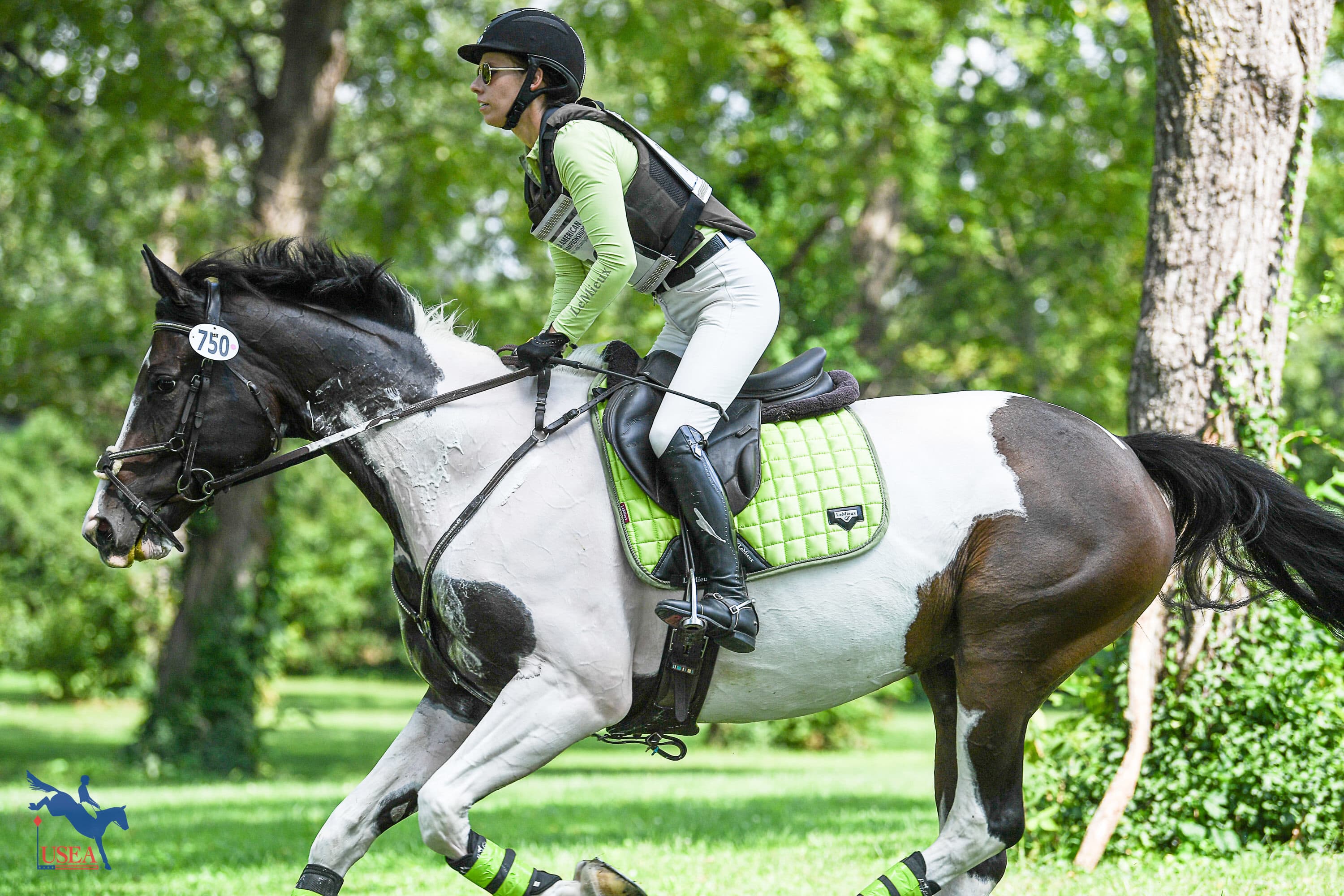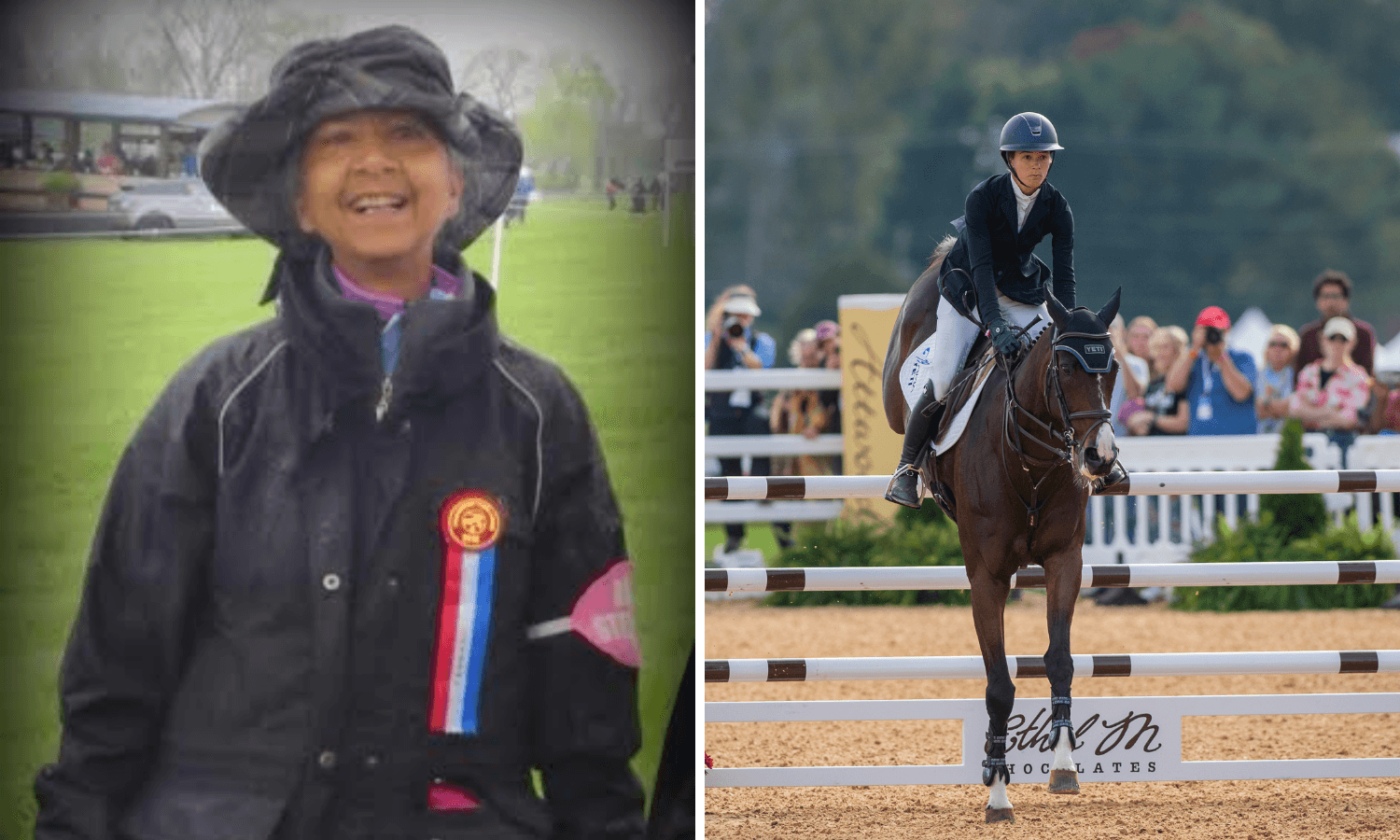Rule Refresher: Rules You Should Know for Competing at the Starter Level

With the Starter level now fully endorsed by the USEA, many competitors are taking advantage of competing at this level in hopes of accruing year-end points on the USEA leaderboard and securing their qualifications for the 2024 USEA American Eventing Championships (AEC) presented by Nutrena Feeds. For those who are new to competing with the USEA or new to the Starter level, we thought it would be beneficial to dedicate this month’s edition of Rule Refresher to all things Starter related!
Text has been taken directly from the USEF Rules for Eventing with emphasis added by the USEA.
What Does the Starter Level Look like?
Specifications for all three phases of the Starter level are as follows:
a. Dressage: Competitors should be prepared to do a walk, trot, and canter dressage test with 20-meter figures and a halt.
b. Cross-Country: Obstacles, solid in appearance, with ground lines, where appropriate, to enhance the fence profile. 1. There must be no jumps before or after a water crossing within 25m (78 ft) before and 16m (54 ft) after. 2. There should be an option for a ditch or water crossing if a ditch or water jump is part of the course. 3. Combinations are not allowed. 4. The track of the course must avoid turns of less than a 20-meter radius.
c. Show Jumping: The jumping course should be inviting and straightforward. 1. Recommend lines of 25m (82 ft) or more. 2. Combinations are not allowed.
In dressage, competitors will utilize one of the following tests:
- 2022 USEA Starter Test | Small (20mx40m) Arena. Time approximately 4:00 minutes
- 2022 USEF Beginner Novice Test A | Small (20mx40m) Arena. Time approximately 4:00 | Large (20mx60m) Arena. Time approximately 4:30.
Cross-country specifications are as follows:
- Numbers and Letters: As designated by the Organizer and printed on the course map.
- Distance: 1200 –1800 meters Speed: 300-350 mpm
- Speed Faults: 420 mpm No. of Efforts: 12 – 16 Fixed Height: .70 m (2’3”)
- Brush Height: .85 m (2’9”) (not to exceed 2’6” in center or spaced brushing )
- Top Spread: .70 m (2’3”)
- Base Spread with Height: 1.00 m (3’3”)
- Spread w/out Height: 1.15 m (3’9”) Drops: .90 m (3”0”)
- Water: If used, an option should be provided. Ditches: If used, an option should be provided. *Combinations are not allowed.
Show jumping specifications are as follows:
- Distance: Maximum 600 meters
- Speed: 300 mpm
- No. of Jumping Efforts: 8 – 10
- Heights: .70 m (2’3”)
- Spread: .75 m (2’6”)
- *Triple bars are not appropriate at the Starter level.
- *Combinations are not allowed.
It is important to note that there are no qualifications for a rider or horse to enter the Starter level. Membership for the rider and horse is optional, however if a rider wishes to earn year-end points on the USEA Leaderboard or earn qualifications for the AEC, they must be USEA members.
What Rules Do I Follow?
All three phases at this level will be subject to the current USEA requirements for the Starter level, USEA Policies and Guidelines, and the USEF Rules for Eventing. Whenever there is no directive given for this level, governance is deferred to the USEF Rules for Eventing, Beginner Novice level and to specifications applied to all levels.
Example: What happens if I fall off?
EV123 in the USEF Rules for Eventing states that in the instance of an athlete fall, riders will be eliminated (marked “RF” for rider fall) at the following levels: BN, N, T, M, P, I, A. As noted above, whenever there is no directive given for this level, governance is deferred to the USEF Rules for Eventing, Beginner Novice level and to specifications applied to all levels. This means that this rule also applies to competitors at the Starter level as well. So if you were to part ways from your horse on course, you would be eliminated.
This guidance also applies to several other rules in the rulebook. Other examples include: Willful delay between the last fence and the finish, speed faults, and fourth penalized disobedience on the entire course; all of which can be found under EV123.
Riders can reference the rules for each phase
- Dressage phase rules EV118
- Cross Country Phase Rules EV121
- Show jumping Phase Penalties EV127














